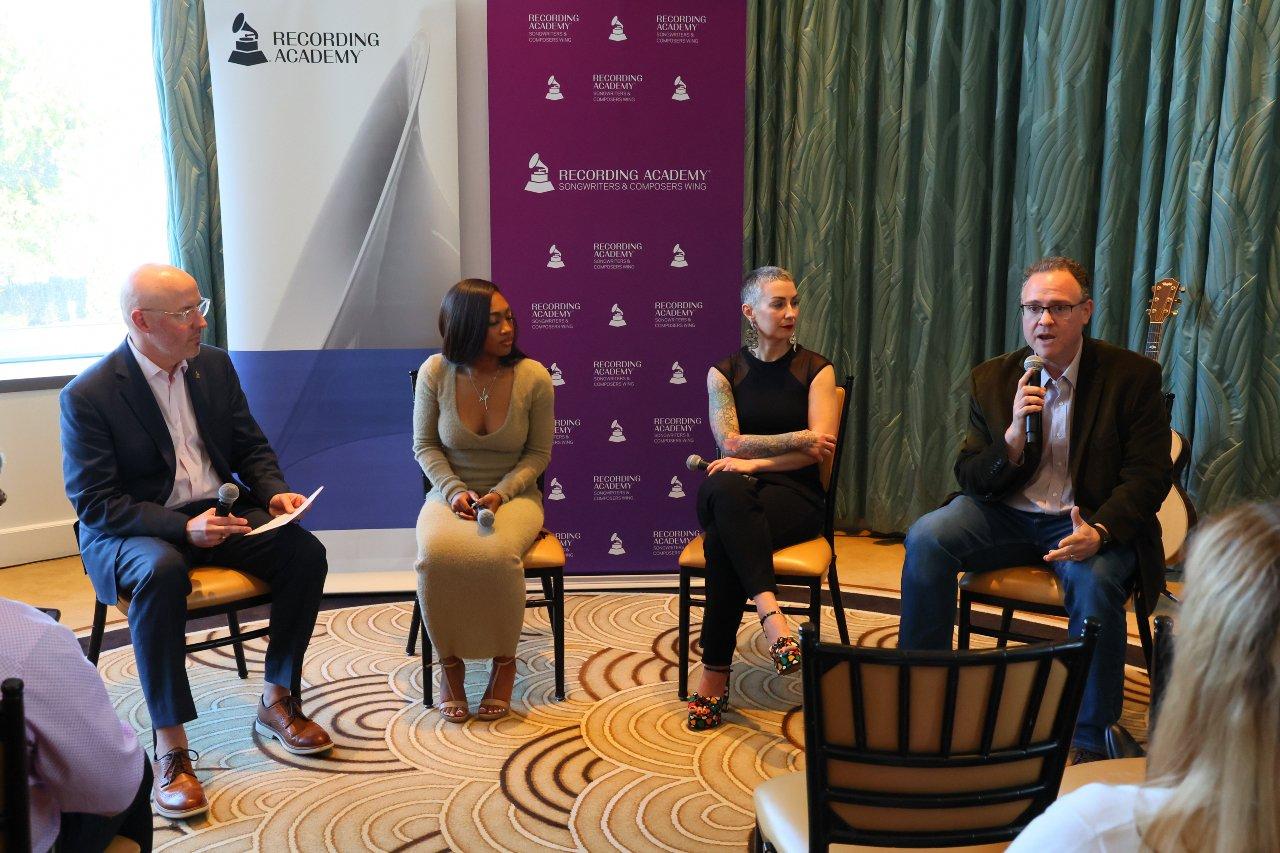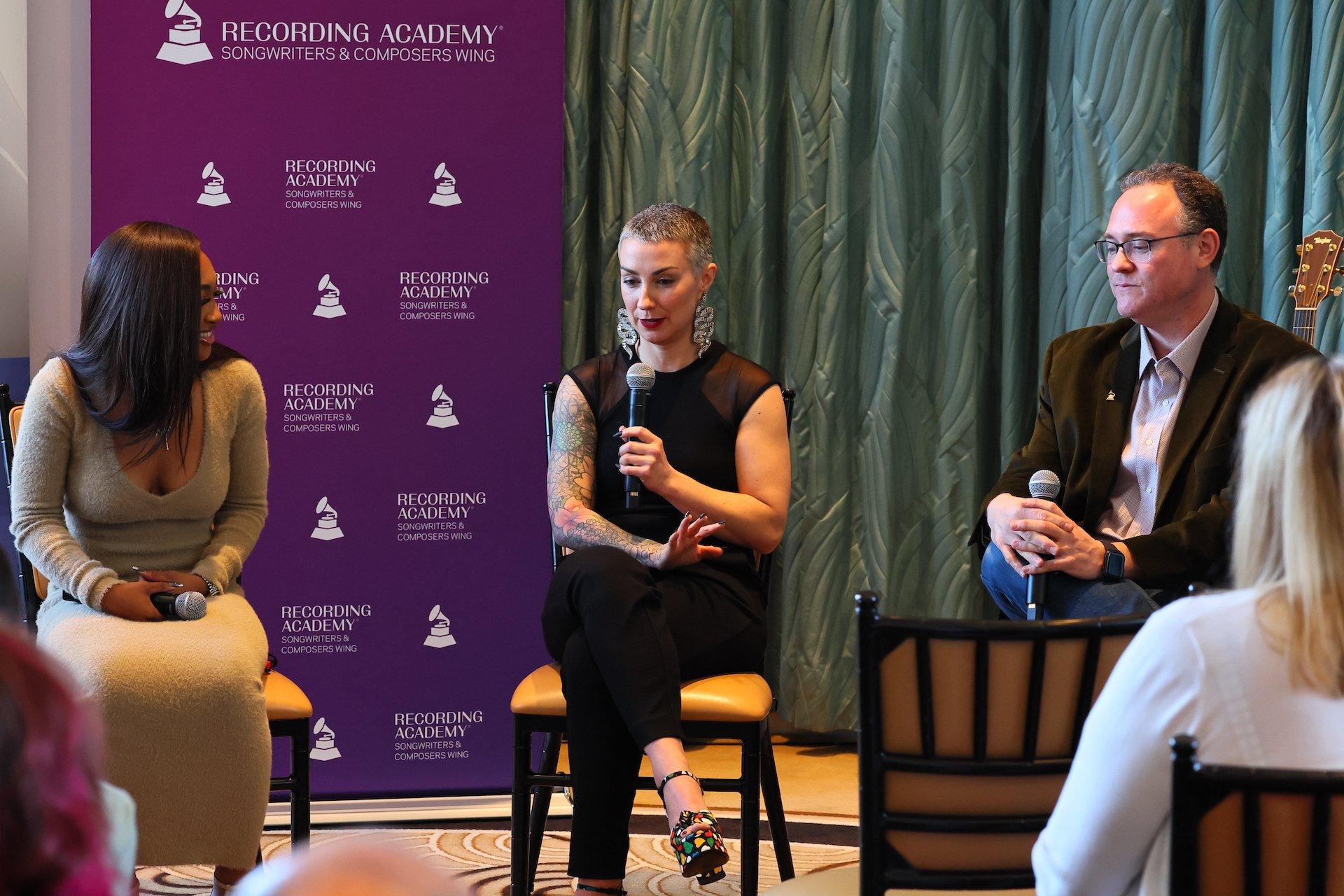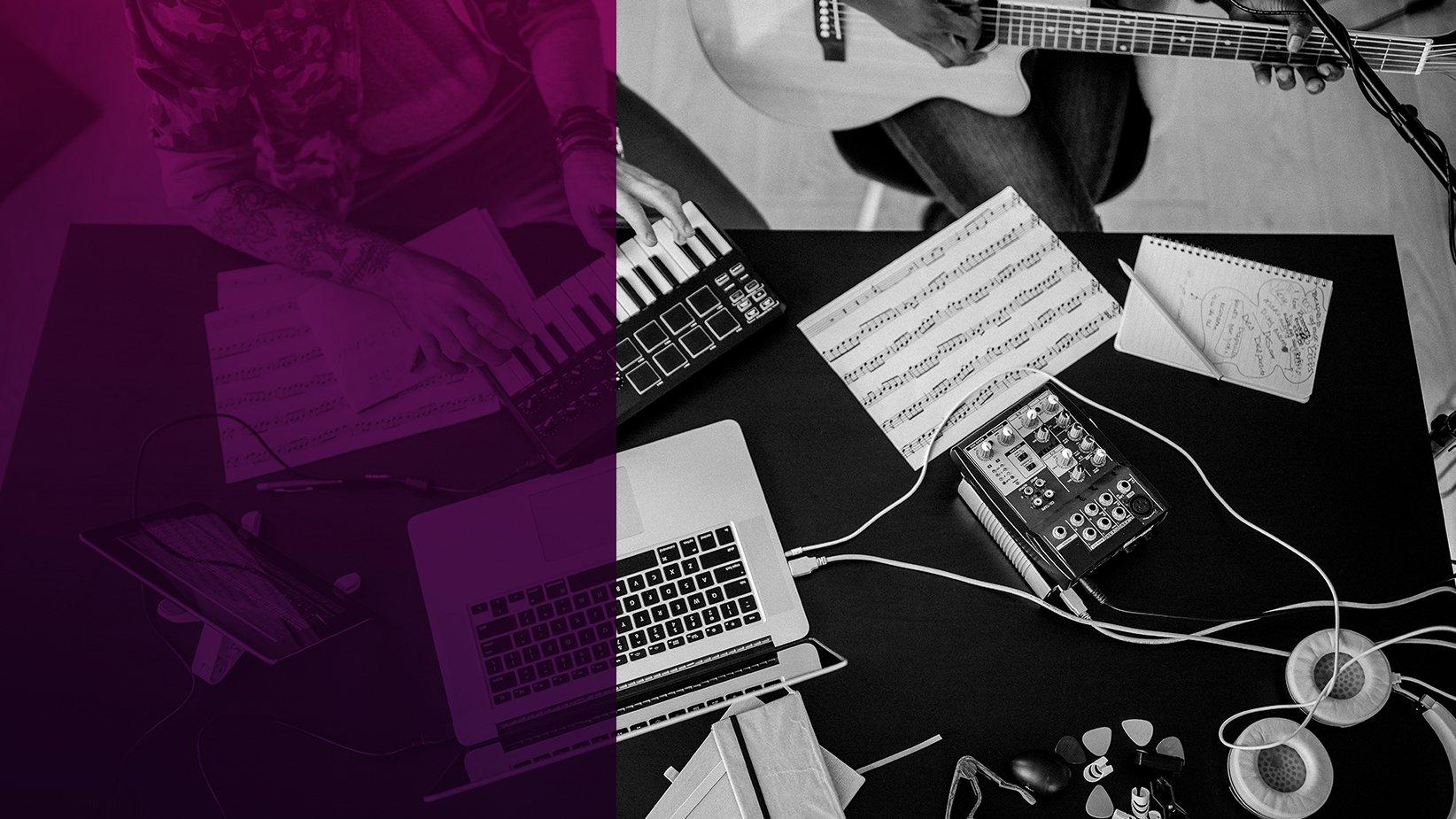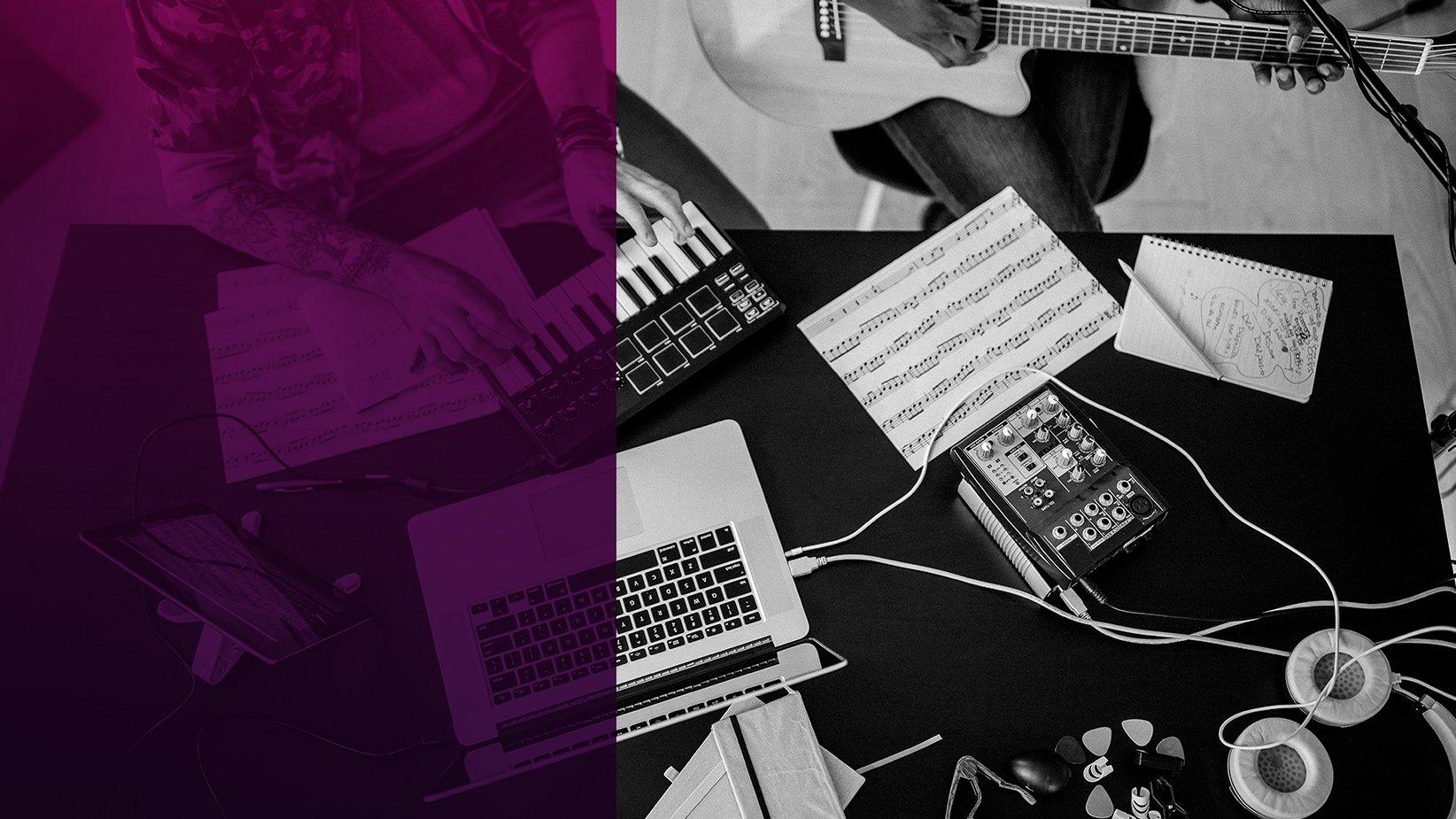Photo: Leon Bennett, Getty Images for the Recording Academy

news
Songwriters Receive Monumental Victory From Copyright Royalty Board: Here’s What The Increase Means For The Music Community
The Copyright Royalty Board (CRB) finally confirmed the royalty rate increase for the 2018-2022 period. Here’s what that means for many songwriters, who could soon see a retroactive bonus in royalty backpay.
In a long-awaited and long-delayed decision, songwriters have received a monumental victory from the Copyright Royalty Board (CRB), which finally confirmed the royalty rate increase for the 2018-2022 period. And that means that many songwriters could soon see a retroactive bonus in royalty backpay.
Last week, the CRB released an official confirmation of the mechanical royalty rate increase for the Phonorecords III period (that covers 2018-2022). This ruling confirms and upholds the increase of royalty rates from 11.4% to 15.1%, which was determined in 2018 for Phonorecords III.
The original determination, made in early 2018, marked a huge win for the songwriter community as they were set up to receive more royalties than ever before. However, in 2019, music streaming services — except for Apple Music — began the appeal process for this ruling thus putting a hold on songwriters receiving the royalties they were owed.
Since the initial appeal, songwriter groups and music publishers have been making their case to the CRB to pay songwriters fairly, while the music streaming services have argued to pay songwriters less.
As lawyers on both sides hashed out the appeal, songwriters have not been receiving the increase in royalty rates that were originally decided in 2018 — an estimated loss of hundreds of millions in royalties owed to songwriters. Thankfully, last week's confirmation will finally allow songwriters to be paid the correct and increased amount of royalties they were owed during the 2018-2022 period in the form of back pay from the streaming services.
For the last several years, going back to the start of the Phonorecords III determination process, the Recording Academy has been vocally advocating for songwriters and composers to earn a more fair royalty rate, and stood with its songwriter members throughout the drawn out legal fight. Upon last week's decision by the CRB, Susan Stewart, Managing Director of the Songwriters & Composers Wing, and Evan Bogart, Chair of the Songwriters & Composers Wing, released this statement:
"We're grateful that the Copyright Royalty Board has officially confirmed the long overdue mechanical royalty rate increase. Songwriters are the backbone of the music community and must be paid fairly to keep our vibrant music ecosystem thriving. The Academy's S&C Wing will continue to support reform to strengthen protections for all songwriters and composers, which in turn, will help our entire industry flourish."
Although the process does not technically end here, the pathway to songwriters receiving the royalties they have rightfully earned is clear and bright. Following last week's confirmation, there will be a 15-day window for rehearing motions that will take place. Next, there will be a legal review for errors conducted by the Copyright Office which could take up to 60 days.
Once those two periods are concluded, the determination will be completely public and streaming services will have six months to make arrangements and payments for the mechanical royalty rates they owe songwriters from the 2018-2022 period. After a lengthy period of appeals between songwriters and streaming services, this is an incredible win for the songwriter community who will likely receive hundreds of millions in owed royalties in the coming months.
And the hard-fought victory also set the stage to give the songwriter community more certainty for the next royalty period that began in 2023. In September 2022, looking to avoid another legal headache, the digital music platforms, music publishers, and songwriters agreed to a settlement for Phonorecord IV (the period of 2023-2027) that will raise the royalty rates even further.
The Recording Academy applauds the songwriters who fought for fair market royalties and looks forward to continuing to support and empower all songwriters for both the remainder of this process and in the future fight for fair pay.
Capitol Hill Spent The Week Talking About AI: Key Takeaways For The Music Community

Photo: LEON BENNETT/GETTY IMAGES FOR THE RECORDING ACADEMY
news
The Copyright Royalty Board Has Published Their Determination On Phonorecords III — Here’s What That Means For Songwriters
This determination means songwriters will start to receive back pay on royalties they were owed from 2018-2022.
After a yearslong process, the Copyright Royalty Board (CRB) has officially published their determination on Phonorecords III — meaning songwriters will start to receive back pay on royalties they were owed from 2018-2022.
As the Recording Academy covered earlier this year, the CRB announced a confirmation of the mechanical royalty rate increase from 10.5% to 15.1% for the Phonorecords III period (that covers 2018-2022). Despite that ruling occurring earlier this year, the process was not officially complete until the determination was published this month.
This is a monumental win for songwriters and composers, who will soon begin to receive the additional owed royalties. To help break down some common questions, the Recording Academy put together a brief FAQ on what this means for songwriters:
How much will songwriters receive?
While the final calculation is not publicly known, some reports estimate that digital streaming services will owe as much as $200 million to songwriters and publishers from Phonorecords III.
When will songwriters begin to receive the backpay?
Songwriters can expect to begin to receive their share of the owed royalties no later than February 2024 — streaming services have six months from August 10 to make arrangements and payments for the mechanical royalty rates they owe songwriters from 2018 to 2022.
How will songwriters collect the backpay?
The Mechanical Licensing Collective is expected to pay any owed royalties that were incurred in 2021 or 2022, which is when it was operational following the passage of the Music Modernization Act.
For royalties owed from 2018 to 2020, the digital platforms will be responsible for making proper payments and may contract with a third-party vendor for processing.
Will there be any oversight to this process?
The U.S. Copyright Office and Congress are monitoring this important process. In addition, stakeholders including the Recording Academy and its Songwriters & Composers Wing will work to ensure that payments are paid properly and timely.
The Recording Academy has been vocal in advocating for songwriters and composers throughout this entire process and has continually pushed for these artists to receive a fairer royalty rate for their works.
Now that the determination has been publicly released, payments to songwriters and composers must be done in an efficient and accurate manner.
The Academy intends to continue following the process and advocating for these artists to receive the payments they have earned.

news
A Proposed Settlement Has Been Reached To Set Songwriter Mechanical Royalty Rates For The Next Five Years: Here’s What It Means For Songwriters
The proposed settlement will raise the royalty rate to 15.35% by 2027 — the highest the rate has ever been. Here’s how it will practically affect songwriters who haven’t always been fairly remunerated by digital service providers.
Since the streaming era began, debate has spilled forth endlessly about the ethics of its payment models — but have you ever wondered how DSPs, or digital streaming platforms, remunerate songwriters? If you don’t know the answer, you’re not alone: how Spotify, Apple Music, Amazon Music, and their competitors pay songwriters is a complicated, confusing, and often litigious mess.
That being established, here’s the bottom line on the underlying mechanisms. As required by U.S. law, every five years, the Copyright Royalty Board (CRB) is tasked with setting a fair market rate for the mechanical royalties that DSPs must award publishers — who, in turn, compensate their songwriters. A legal proceeding with a three-judge panel, the CRB features arguments from publishers, songwriters and digital platforms.
This hasn’t always been a smooth process — far from it. In fact, recent CRB proceedings have resulted in years of fighting in and outside the courtroom. Worse yet, these conflicts have hindered songwriters from receiving compensation for the work in a fair, timely manner — which does nothing but add hardship and uncertainty to their professional and financial lives, in an industry that’s already precarious for creators.
Here’s where the next CRB rate court proceeding, known as CRB Phonorecords IV, comes in. This month, it was set to commence in Washington and govern the royalty rate from 2023 all the way to 2027.
Like prior iterations, it was expected to be a costly and long legal battle pitting songwriters against some of the biggest companies in world history — if you will, a true David versus Goliath fight in Washington, D.C. Thankfully, though, a light in the darkness has emerged — one that could help turn the tide for songwriters whose payments have been most affected by these twice-decade battles.
On Aug. 31, the National Music Publishers’ Association (NMPA), the Nashville Songwriters Association International (NSAI) and the Digital Media Association (DiMA) announced a proposed settlement to avoid the courtroom and set the songwriter mechanical royalty rates that streaming services will pay to publishers for the years 2023-2027. The proposed settlement starts by locking in the 15.1% royalty rate songwriters just won in the previous rate proceeding, and it will raise the royalty rate to 15.35% by 2027 — the highest the rate has ever been.
Not only will the headline rate increase under this agreement; it will bring about improvements to alternate rate structures, including raising what’s referred to as the per subscriber penny rate and the Total Content Cost (TCC), which guarantees a percentage of what record labels are paid. Additionally, this deal modernizes the treatment of “bundles,” which combine music services with other offerings. These changes effectively raise the floor of what songwriters will get paid no matter what happens to DSP revenue in the future.
The proposed deal marks significant progress in the fight over songwriter pay on digital streaming services. Since 2018, the two sides have engaged in a lengthy legal battle, and costly appeal, over the CRB Phonorecords III decision that governed royalty rates from 2018-2022. That legal process finally ended this summer, with the CRB siding with songwriters and publishers and affirming the 15.1% rate.
This proposed settlement shows that streaming services acknowledge that they want to be partners — not competitors — with songwriters. Plus, it means that songwriters won’t have to wait to get paid a higher rate. This new pay bump will come on top of a significant sum of backpay that the platforms owe publishers following this summer’s earlier Phonorecords III decision.
Both the back pay and new royalty rate will be administered by the Mechanical Licensing Collective (MLC), which has distributed hundreds of millions of dollars in royalties since its inception following the passage of the Music Modernization Act in 2018.
Now that a settlement has been reached, the deal must still be approved by the CRB, which will review the proposal along with public comments from interested stakeholders. This agreement would not have been possible had it not been for the dedication and activism that songwriters have shown when it comes to fighting for fair royalty rates.
The Recording Academy applauds this step in the right direction for fair compensation for songwriters, and eagerly awaits further steps in Washington and beyond to give all music people what they deserve — financially and otherwise.

news
What Songwriters Need To Know About The Next Royalty Rate Decision
In October, streaming services again asked the Copyright Royalty Board to lower royalty rates for songwriters. Here's a breakdown of what that might mean over the next several years.
Two weeks ago, the Recording Academy announced the nominees for the 64th GRAMMY Awards. We're proud to have nominated the highest number of songwriters in the history of the awards due to a groundbreaking rule change this year that created unprecedented inclusivity and recognition of the craft of songwriting.
Unfortunately, in October when digital services submitted proposed rates to the Copyright Royalty Board (CRB) for the next five-year period, which will cover 2023 through 2027, the major streaming services such as Spotify, Apple Music, YouTube (Google), and Amazon Music proposed lowering mechanical rates back down to as low as 10.5 percent — a mechanical rate lower than the current rate.
What does this mean? It means that streaming services are trying to lower the compensation rate they pay to songwriters. Additionally, they want to redefine what revenue goes towards those royalties, which would generate the lowest amount of royalties paid in 15 years.
If these proposed rates were adopted, the tech companies would continue to grow at the expense of the music creators who create the content that makes their businesses possible. That is unacceptable.
These submissions undoubtedly set the stage for an administrative proceeding and showdown that will start next year and include witness testimony from both the digital services and the music publishers. As a songwriter myself and the Chair of the Academy's Songwriters & Composers Wing, I am committed to making sure songwriters know what's at stake in the months ahead.
My friend and Recording Academy CEO Harvey Mason jr. frames the issue clearly, stating, “As streaming services continue to grow, it's imperative that they value the work of the songwriters that are the foundation of the music they use to fuel their businesses.”
DiMA (the Digital Media Association), which represents the streaming companies, attempted to shift attention away from the low rates proposed by its members by asserting that such proceedings only "help ensure that the music distribution system works efficiently and effectively," that songwriter royalties are affected by the terms of their deals with publishers, and that "the number of songwriters contributing to hit songs has grown astronomically."
On the other hand, the NMPA (National Music Publishers' Association) believes this to be endemic of a disconcerting paradigm. "It is disappointing, but not surprising, given how they have treated songwriters over the years," the NMPA said in a statement. "The next time you see a billboard, paid ad, or token gesture from a streaming service claiming to value songwriters, remember that their actions speak louder than any hollow gestures."
While it is essential that we ensure an equitable relationship between publishers and songwriters that includes full transparency, that has no bearing on the low rates that digital services are advocating for. If the streaming services prevail with their proposal, the small payments that songwriters receive from streaming and digital radio would shrink even further and music would be further devalued, jeopardizing the income and livelihood of songwriters.
During the last rate setting for the period stretching from 2018 through 2022, songwriters and publishers won a hard-earned victory as the CRB actually increased mechanical royalty rates by 44 percent, a decision that has been defended by the Recording Academy. Unfortunately, that decision was appealed by the streaming services and is still tied up in litigation, meaning those higher rates have never gone into effect.
At the same time, the CRB also recently reopened the comment period for setting rates on mechanical royalties for physical records and downloads. Music publishers and record labels had proposed keeping this rate frozen at 9.1 cents per song, the same as it's been since 2006. But critics in the songwriter community sought the opportunity to provide additional input on the impact of the outdated rate.
The CRB hearings for the new rate setting won't begin until April 2022, so there's a long process ahead before the rates are formally set by the CRB. In the meantime, continue to watch this space for updates and ways you can get involved to ensure all music makers are paid fairly for their work.
